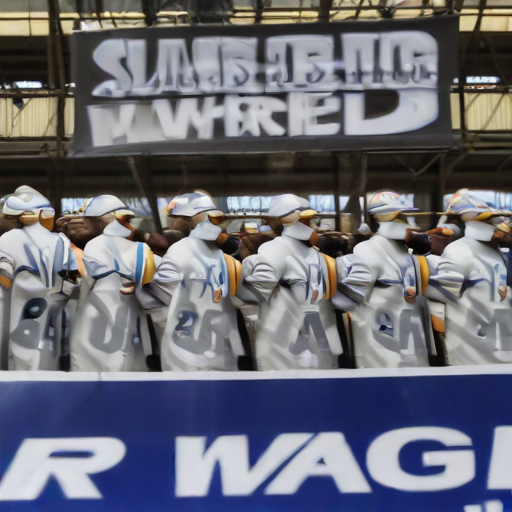Samsung employees continue their strike for improved working conditions and higher wages, having organized a significant rally on Monday in South Korea’s Yongin area. With approximately 1,200 members from the National Samsung Electronics Union (NSEU) participating, the demonstration marked the third week of ongoing labor action.
The rally coincided with preliminary wage negotiations held by the union and Samsung, as reported by multiple news outlets. The NSEU initiated an indefinite strike on July 8, following an unsuccessful earlier walkout aimed at securing enhanced workplace rights and benefits.
Although the NSEU comprises over 30,000 members, the exact number of those partaking in the indefinite strike remains unclear. Nonetheless, this strike is noted as the largest in Samsung’s history. The context of this action is particularly significant, as Samsung anticipates astronomical growth in its second-quarter revenue—projected to increase over 1,450% year-on-year—largely driven by advancements in artificial intelligence. Profits surged in the first quarter of 2024, amounting to a ten-fold increase. Despite these financial successes, workers argue that their wages have not reflected the company’s lucrative returns.
Many striking workers are involved in Samsung’s foundry operations, crucial to producing advanced computer chips. Concerns about labor rights are compounded by Samsung’s historical resistance to unionization and its limited experience in negotiating with its workforce, as indicated by labor experts.
Experts also suggest that the outcome of this strike could have broader implications for the labor movement in South Korea. According to Vladimir Tikhonov, a professor of Korean studies, if Samsung workers achieve their goals, it could inspire and empower labor efforts across the country.
In summary, as Samsung employees advocate for better working conditions amid remarkable company profits, their actions may resonate beyond the organization, potentially galvanizing the labor force in South Korea. This pivotal moment for the workers reflects a growing trend in advocating for fair wages and rights in an era of substantial corporate dependency on skilled labor.
